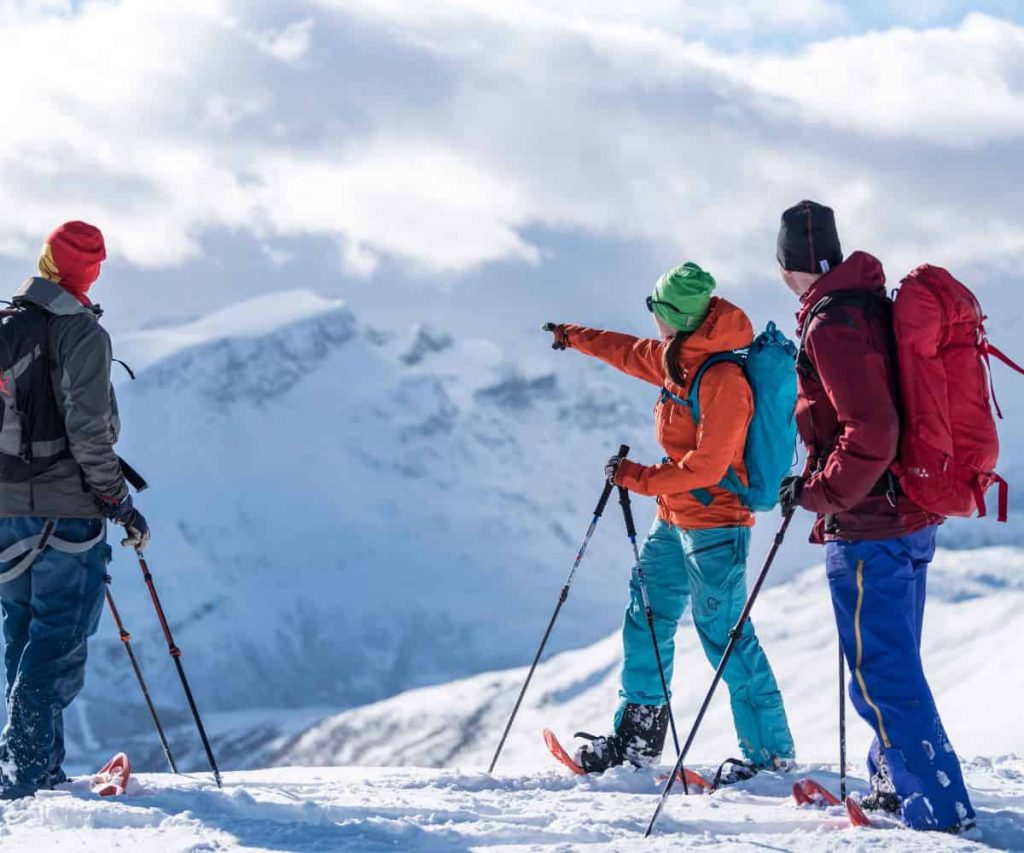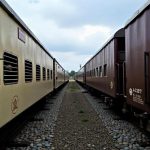The Scandinavian word ‘hygge’, the concept of cosying up and getting comfortable at home, has become pretty well-known globally over the last few years. The Norwegians have the word ‘friluftsliv’, which is the philosophy of embracing outdoor activities and immersing yourself in nature. Where better place to do this than in the fjordlands. Whether visiting picturesque towns, on a boat cruise on a fjord, driving, hiking or skiing in the stunning Sunnmore Alps, this part of Norway has some of the most spectacular scenery in Scandinavia.




The ferry slices through the glassy waters of the fjord. Towering rock walls stretched spectacularly above us. Abandoned farmhouses cling to the cliff faces, and slender waterfalls cascade down to meet the tranquil surface of the fjord. We are in the heart of the Geirangerfjord, a UNESCO World Heritage site, a place of breathtaking natural beauty and a sapphire-coloured jewel in Norway’s western fjords.


Disembarking the ferry in the tiny town of Geiranger, we climb the 327 steps, on a walkway that criss-crosses the bottom of Storsæterfossen waterfall, to our hotel, the very grand Hotel Union. The hotel is where Norway’s Princess Märtha Louise is soon to tie the knot with American self-styled shaman Durek Verrett. Renovations for the wedding are underway, so, aside from the builder, we pretty much have the place to ourselves, while getting a taste of what the upcoming private wedding ceremony and following days of celebrations will be like.




With an afternoon trip on the fjord in a RIB (Rigid Inflatable Boat) planned for the afternoon we head from the hotel, down to an old boathouse on the edge of the water. Wearing insulated dry-suits, we clamber aboard the boat. Heading out we zip, zoom and zigzag across the water. The air is cool, crisp and fresh. The rugged cliffs tower above us as the boat navigates high-speed twists and turns. I don’t think I’ve ever embraced an outdoor activity, or my seat, any tighter! This is definitely the fastest way to see the fjord.


We cruise deep into the heart of the fjord. The captain cuts the engine. The silence is sudden, only interrupted by the eerie cry of an eagle and the distant rumble of waterfalls cascading down the mountainsides. It feels as if we are in a nature documentary, except that rather than watching it on the Discovery Channel, we are right in the middle of it all. We look for the seals and porpoises that often call these waters home and think about the harsh lives lived by the people who’d once eked out a living at the abandoned farmhouses on the cliffs above us.




Two hours from Geiranger and the next stop on our travels, Ålesund could have been taken straight from the pages of a fairy tale. A disastrous fire in 1904 had left much of the town in ashes, but rebuilt, Ålesund now not only has the world’s finest concentration of Art Nouveau buildings, but is situated right between the ocean, the islands and Norway’s best fjords, making it the perfect base for exploring this stunning part of the world.


We lace up our walking shoes and hit Ålesund’s cobblestoned streets. After a short visit to the Art Nouveau Centre & Art Museum KUBE, to learn more about the town, its history and its architecture, we climb the 418 steps to the Mt Aksla viewpoint. Braving the strong winds, we look out at the panoramic views of the city. Next on our agenda is the Atlanterhavsparken, Northern Europe’s largest saltwater aquarium and marine science centre. We arrive just in time for the daily seal feeding and are thoroughly charmed and entertained by both the seals and their keeper – who knew seals had such amusing personalities?




Ålesund is sometimes called ‘the Venice of Norway’, thanks to its canals and narrow streets. The next morning, we decide to spend some time on a guided kayaking tour of the beautiful Brosundet canal, which snakes through the centre of town. The colours and shapes of buildings lining the canal are reflected on the surface of the water, and the smell of coffee drifts tantalisingly out over the water from the small bussing cafes that line the waterfront.


Passing under the low bridges that span the canal we can hear the chatter of people crossing above us. Reaching one end of the canal, we pass under a bridge and pop out near the cruise boat terminal. We can see the cruise ships and passenger ferries more
d, ready and waiting to depart. At the other end of the canal, we pass the tiny red Molja Lighthouse, which has stood here, guiding ships into the harbour for over a century and a half.
Ålesund is home to Norway’s most important fishing harbour, so seafood is definitely on the menu. On our way to lunch we pay a visit to one of the fishermen, in his bright yellow waterproof overalls, who sells his catch directly from his boat in the canal. We admire his prawns, cod and salmon, but having nowhere to cook it ourselves, we carry on to the find ourselves a restaurant.




Leaving Ålesund behind, we head out of town. Travelling the winding roads we drive into the Norwegian backcountry, passing through some of the most dramatic landscapes imaginable. Nordfjord is our next destination – situated between Norway’s wild coast and the Jostedalsbreen glacier, the largest in Europe. At Loen, Nordfjord’s most inland village, we decide to try our hand at snowshoeing and sledding. The Skylift whisks us from the fjord’s edge to the top of Mt Hoven in minutes. Once at the top it’s evident that my snow skills are somewhat lacking! Fortunately, the panoramic views over the fjord below more than make up for it. Retiring for lunch in the restaurant, perched on the edge of the snow covered cliffs, it feels like we are dining in a scene out of a James Bond movie.


After a night in the lovely Hotel Alexandra, we decide some skiing is on the cards. If you are into skiing, then the Norwegian fjords are the place to be and while Norway might not be on your radar for ski resorts just yet, there are plenty of them and skiing here is more affordable than skiing in the Swiss or French Alps – insiders consider the Norwegian Alps one of the best places in the world to ski.




We travel to the nearby Strandafjellet ski resort, in the gorgeous Sunnmøre Alps, with its seven ski lifts, 18 downhills and what may be Scandinavia’s best free-skiing area. Waiting for the gondola, skiers of various ages, but undeniable skills, zoom down the slopes towards me, carving through the snow with ease, their skis cutting fresh tracks into the snow. I’m feeling intimidated and by the time I disembark from the gondola and met my guide, I’m actually quite glad to see he has snow shoes and not skis waiting for me. It has rained the night before, and the slopes were too icy for someone like me, who hadn’t skied properly for years. Better safe than sorry. Leaving the downhill slopes to the skilful, stylish skiers, I waddle off in my shoe shoes, looking a bit like a determined penguin.


After an hour or so of trudging about, we reach a line of bright red deck chairs in the snow. It’s the perfect spot to sit and look out over the bright blue fjord far, far below, and with a warm solbærtoddy (blackcurrant tea) in my hand, I decide I’ll have to come back and try the skiing another time. The area is popular with hiking enthusiasts too, which is something I am much better at, so I think perhaps I’ll return in the summer and visit some of the trails instead.


For me Norway’s western fjordlands were the perfect blend of natural beauty and amazing outdoor adventures. From the serene, misty waters of the Geirangerfjord, to the ski slopes of Sunnmøre Alps or the canals of the charming Art Nouveau town of Ålesund, this part of the world is definitely all about embracing outdoor life – friluftsliv!
Did you enjoy this article?
Receive similar content direct to your inbox.
Please enable JavaScript in your browser to submit the form


